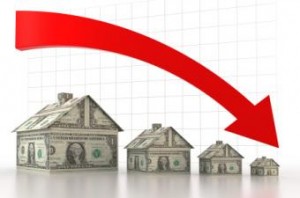 The optimism expressed by consumers toward the economy and the housing market at the beginning of the year has stalled as consumers' attitudes toward personal finances and wage growth have taken a step backward, according to Fannie Mae's March 2015 Housing Survey released Tuesday.
The optimism expressed by consumers toward the economy and the housing market at the beginning of the year has stalled as consumers' attitudes toward personal finances and wage growth have taken a step backward, according to Fannie Mae's March 2015 Housing Survey released Tuesday.
Whereas February's survey showed that consumer optimism toward the economy was at an all-time high, March's survey painted a different picture. The March employment summary released last week by the Bureau of Labor Statistics (BLS) showed only 126,000 jobs added for the month, which was less than half of the monthly average (266,000) for the 12 previous months, may have played a role in the lack of growth in consumer optimism. That same BLS March employment summary reported an average wage gain of just 2.1 percent year-over-year up to $24.86 per hour.
“Consumers are being patient prior to entering the housing market. Our March survey results emphasize how critical attitudes about income growth are to consumers’ outlook on housing,” said Doug Duncan, SVP and chief economist at Fannie Mae. “We've seen modest improvement in total compensation resulting from a strengthened labor market. However, income growth perceptions and personal financial expectations both eased off of recent highs, consistent with Friday’s weak jobs report."
To illustrate the less-than-positive attitudes toward the economy and toward personal finance situations, consider: The share of respondents in Fannie Mae's March survey who said they believed the economy was on the right track fell by 4 percentage points down to 43 percent after hitting an all-time high of 47 percent in February. The percentage of respondents who said they expect their personal finance situation to get better in the next month dropped for the second month in a row, this time by five percentage points down to 41 percent. The share who said their household income is significantly higher than it was 12 months ago declined by 2 percentage points, down to 22 percent. The percentage who said their household expenses are significantly higher than they were four months ago jumped by 4 percentage points up to 35 percent.
Meanwhile, the share of respondents who said they would buy a home if they were to move right now fell by 5 percentage points to an all-time survey low of 60 percent, while the share who said they would rent if they were to move increased to 34 percent.
"Simultaneously, the share of consumers expecting to buy on their next move has declined," Duncan said. "We believe the recent setback in consumer sentiment should be short lived if early signs of income growth bear out and occur in proportion to expected interest rate increases. Meanwhile, the wait for housing expansion continues.”
The percentage who said they believed now is a good time to sell a home reached an all-time survey high of 46 percent in March, while the share who said it was a good time to buy declined slightly to 66 percent.
Also, after reaching an all-time survey high in February of 54 percent, the share of respondents in March who said they thought it would be easy to get a mortgage declined by 4 percentage points down to 50 percent. Meanwhile, the share who said they thought it would be difficult to obtain a mortgage rose to 46 percent.

 theMReport.com Your trusted source for mortgage banking news
theMReport.com Your trusted source for mortgage banking news








